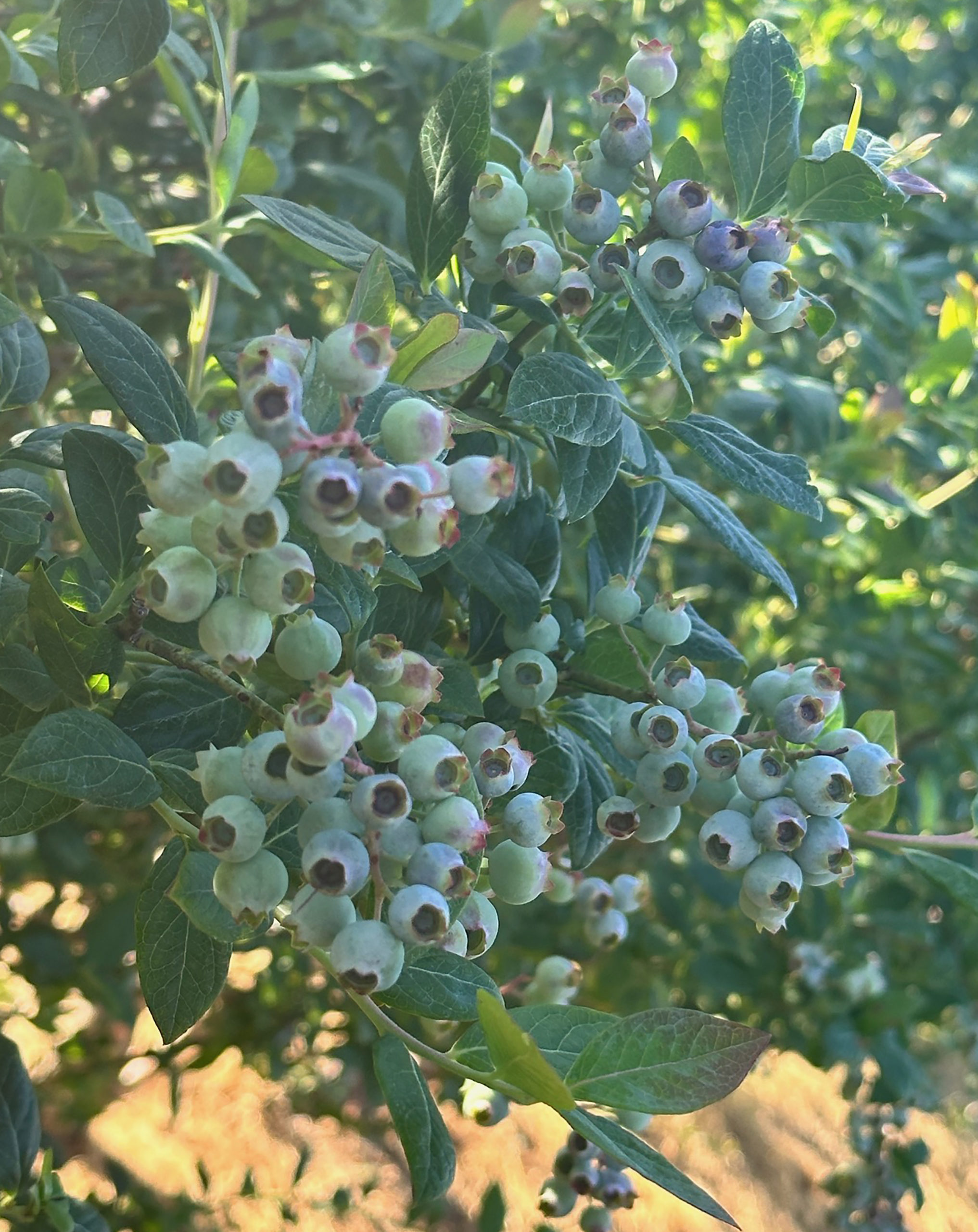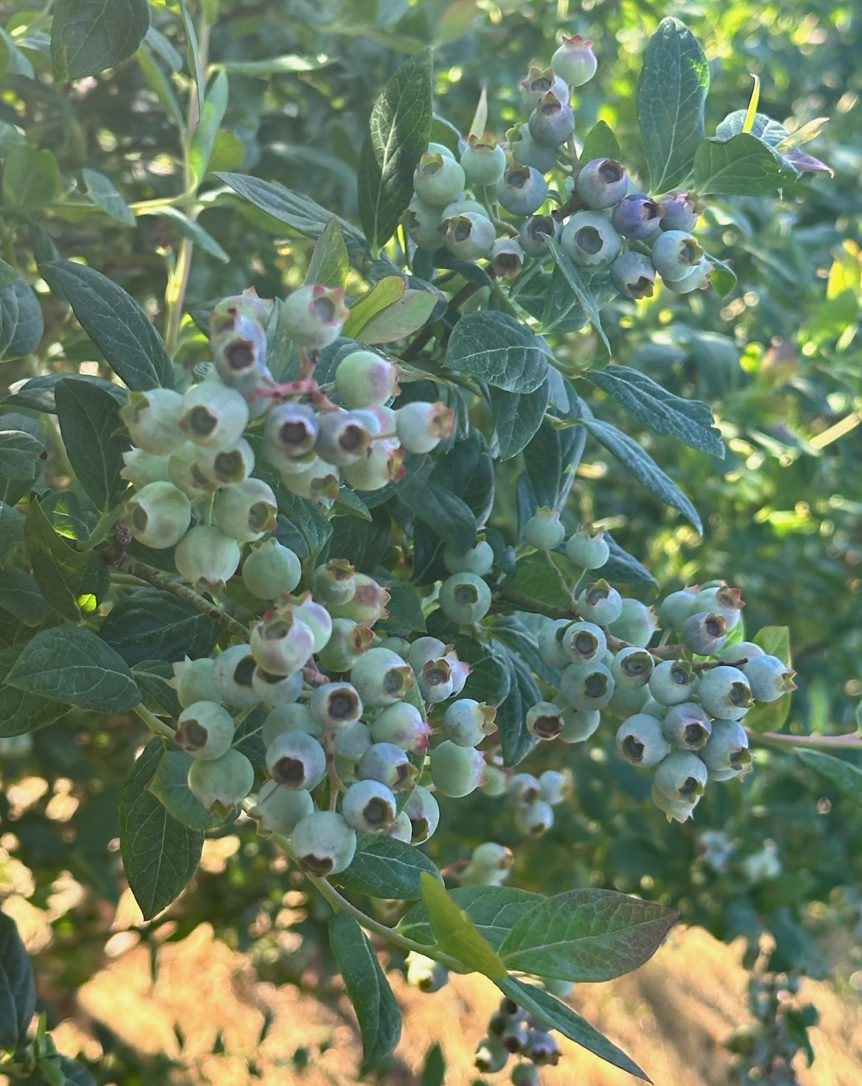By Clint Thompson
Two straight seasons of spring freeze events has one Alabama blueberry farmer ready to modify how he manages his blueberry crop.

Jimmy Ferguson said this year’s late-season freeze impacted between 30% and 40% of his rabbiteye crop and about 20% of his highbush. That followed the freeze in 2023 that completely wiped out his 25-acre farm.
“We’ve been doing fairly well over the years, but the last two years, this weather has given us fits. We’re not prepared for it,” Ferguson said. “I was going to have a big year last year. They were loaded until that big freeze came; two nights of freezing weather down in the low 20s. Blueberries can’t stand it.
“We didn’t make any berries last year. I was hoping this coming year would be a productive year and I was going to put some overhead frost protection in.”
Ferguson’s farm is located about 65 miles north of Mobile along the Alabama-Mississippi state line. He has a wind machine that provides some frost protection, but it only covers part of his entire acreage. He attended the Southeast Regional Fruit and Vegetable Conference in Savannah, Georgia, this past January and plans to establish more extensive and reliable frost protection.
“I’m just going to have to bite the bullet and do it,” Ferguson said.
Ferguson, a retiree, has produced blueberries for 12 years. His prior years of production success led to investing in farm equipment, notably an automated harvester. It allowed Ferguson to address the labor shortage and financial constraints that come with using the expensive H-2A program.
“Instead of me putting money back in for overhead frost protection, I put it in equipment on account of the labor situation. I’ve gotten to where I can operate it now with about eight men. Before then, I’d have to have about 30, 40 or 50 men,” Ferguson said.
Nearing Harvest Season
Ferguson believes he is a couple of weeks away from the start of this year’s harvest season. He’ll harvest for the next two months. Ferguson will utilize a broker to market his produce which can be found all over North America.
“Everybody in Alabama and Mississippi has got blueberry bushes in their backyard. They’re not going to pay a good price for the berries. We ship all of ours to Texas, Missouri, Chicago and some to Canada. We’ve got a good broker, and he can move our berries,” Ferguson said.










